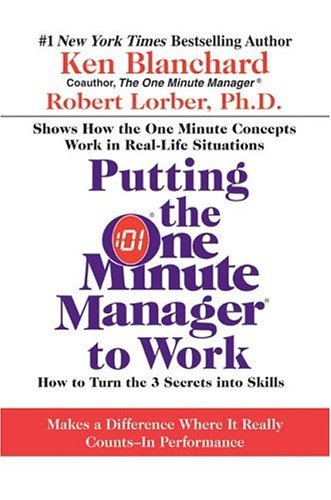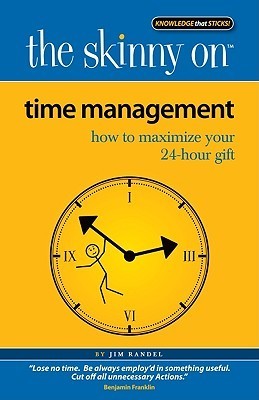
The One Minute Manager
Book Description
Imagine transforming your management style in just sixty seconds. *The One Minute Manager* unveils powerful techniques that flip conventional leadership on its head. With captivating anecdotes and practical wisdom, it teaches the art of effective communication and streamlined goal-setting in the fast-paced world of business. Master the subtle balance of praise and reprimand to empower employees and foster a thriving workplace culture. Every chapter challenges the norms, sparking an exhilarating journey towards efficient management. Are you ready to unlock the secrets of a more productive and motivated team?
Quick Book Summary
"The One Minute Manager," by Kenneth H. Blanchard, offers a concise and practical approach to effective management. The core message centers around three essential techniques: One Minute Goals, One Minute Praisings, and One Minute Reprimands. By embracing these methods, managers can dramatically boost productivity, motivation, and morale with minimal time investment. The book teaches that clear, quick communication is key to ensuring employees understand their objectives and receive timely feedback—both positive and corrective. Through simple, actionable stories, Blanchard illustrates the transformative effects of recognizing achievements and addressing problems without delay. Ultimately, the book empowers managers to create a workplace culture rooted in clarity, accountability, and mutual respect, leading to outstanding results for both individuals and teams.
Summary of Key Ideas
Table of Contents
The Power of One Minute Goals
The book opens by outlining the concept of One Minute Goals, arguing that clarity is critical to employee performance. Managers and employees collaboratively set concise, clear goals together, each written in 250 words or less and regularly reviewed. This approach ensures alignment, eliminates confusion, and helps employees focus on what truly matters. Immediate feedback is made possible, as both parties always know what success looks like and how progress will be measured.
Effective Use of Praise and Recognition
Next, Blanchard stresses the importance of One Minute Praisings. Recognizing positive behavior as soon as it occurs reinforces good habits and boosts morale. Praisings are delivered by specifically detailing what was done well and how it contributes to organizational success. This immediate recognition fosters a positive feedback loop, inspiring employees to continue performing at high levels and helping to build their confidence and self-worth.
Providing Constructive Feedback Quickly
The One Minute Reprimand is introduced as an equally vital tool. When corrective action is necessary, managers address issues quickly and directly—never focusing on the person, but on the behavior. The reprimand is brief, specific, and followed by affirming the individual's value to the team. This prevents resentment, promotes accountability, and enables employees to move forward without lingering negativity or confusion about expectations.
Building Trust Through Communication
Underlying all three techniques is the principle of frequent, open communication. Managers are encouraged to be present, notice what employees are doing, and engage in ongoing dialogue. This constant interaction builds trust, ensures transparency, and enables faster problem resolution. By making feedback a regular routine, workplace misunderstandings and frustrations are greatly diminished.
Cultivating a Motivating Work Environment
The book concludes by emphasizing the role of an empowering work environment. Managers who master these techniques cultivate a culture where employees feel valued for their contributions and clear about their roles. These principles do not require extensive time commitments, but rather thoughtful, intentional actions. The result is a motivated, productive team capable of achieving organizational goals while enjoying their work—proving that small, consistent changes can yield extraordinary outcomes.
Download This Summary
Get a free PDF of this summary instantly — no email required.





